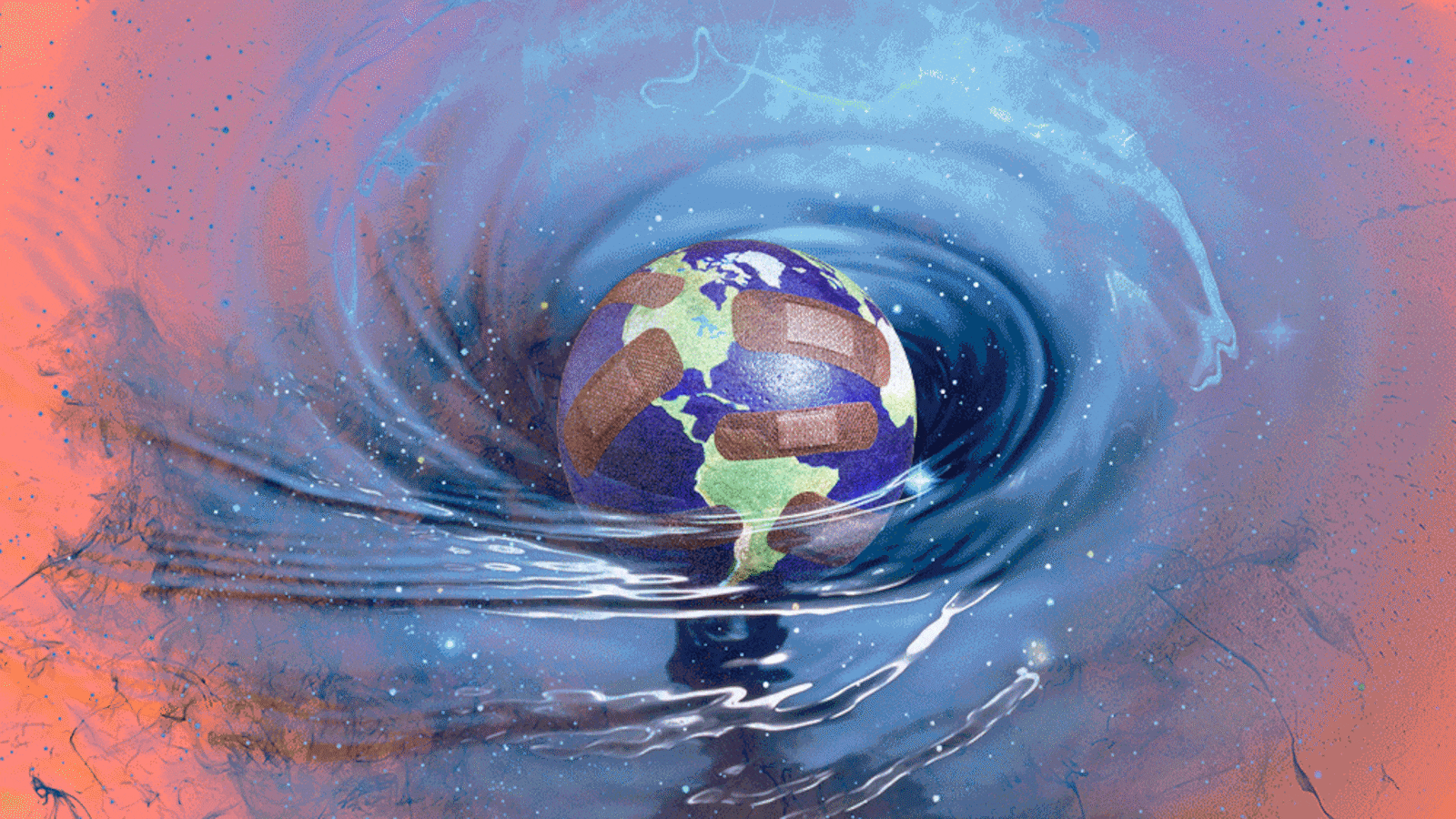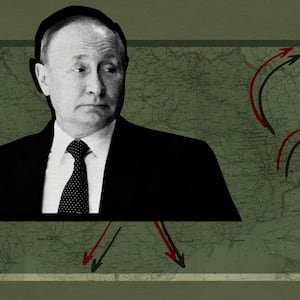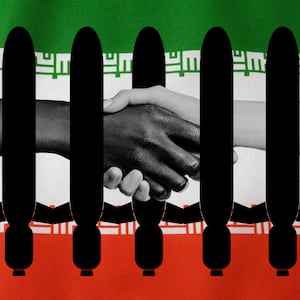The annual meeting of the United Nations General Assembly (UNGA) in New York is generally reviled by New Yorkers for the traffic jams it causes, but otherwise ignored by the public at large.
One by one, heads of state typically give speeches that cause their staffs great anxiety but, for the most part—laden as they are with idealistic platitudes about the promise of the UN’s mission—disappear quickly into each day’s ocean of news never to be heard from again.
The UNGA occasionally produces a rare newsworthy moment, but even then the 30 seconds of impact it makes on the consciousness of readers and viewers is typically immediately overshadowed—as has been the case this week in the U.S. with domestic political scandals and the appearance of the latest Kardashian baby.
Perhaps it is just as well. Because if the average person paid closer attention to what was really being discussed at the UN, or had the opportunity to listen in on some of the behind-the-scenes conversations as some of us are obligated to do, they would come away from the experience shaken not stirred.
Take for example, Tuesday’s opening speech by UN Secretary-General Antonio Guterres. “We are gridlocked in colossal global dysfunction,” he said, apparently in no mood for bland diplospeak, “The international community is not ready or willing to tackle the big dramatic challenges of our age. These crises threaten the very future of humanity and the fate of our planet. Our world is in peril—and paralyzed.”
His core point: “Our world is in big trouble.”

UN Secretary-General António Guterres speaks during a United Nations Security Council.
Michael M. Santiago/GettyThat point was underscored by the fact that a day later, Vladimir Putin chose to mark this UN week with a speech of his own—in which he announced not only the call-up of 300,000 conscripts to serve in the Russian army and join its disastrous invasion of Ukraine but also threatened the use of nuclear weapons.
“When the territorial integrity of our country is threatened, to protect Russia and our people, we will certainly use all the means at our disposal. It’s not a bluff,” Putin said.
Russia’s territorial integrity is not, of course, threatened… they’re the ones who invaded their neighbor without provocation. But the fact that the remarks of the man who controls the world’s largest nuclear arsenal were, in fact, untethered to reality made them more not less menacing.
The response of world leaders at the UN was swift.
U.S. President Joe Biden, on Wednesday, called out Putin as the sole individual responsible for the calamitous conflict in Ukraine, and pledged to defend that country. He argued that “a nuclear war cannot be won” and condemned Putin’s threat. The president also called for UN reforms, such as increasing the number of permanent members on the Security Council and reducing the veto powers of those permanent members—which might make the organization a little less, to use Guterres’ term, dysfunctional.
Other leaders also condemned Putin including, via video feed, Ukraine’s President Volodymyr Zelensky who called for Russia to be designated a state sponsor of terror and for it to be expelled from positions like the one it holds on the Security Council. “A crime has been committed against Ukraine, and we demand just punishment.”

Ukrainian President Volodymyr Zelensky speaks to world leaders via a video link at the UN General Assembly on Sept. 21, 2022, in New York City.
Spencer Platt/GettyCompounding the concerns associated with Putin’s remarks were signs of unrest in his own country. Men of conscription age fled the country by car and by plane, bottling up border crossings and selling out flights. Protesters took to the streets. And Putin, no doubt feeling trapped due to his serial blunders in Ukraine, felt even more cornered and at risk—a factor compounding the dangers of this moment.
There was also a general sense that Putin’s mobilization could backfire and actually contribute to further problems for Russia in Ukraine—a situation that might make a desperate Putin even more desperate.
Meanwhile, one of Putin’s few remaining close allies in the world, Iran, was itself facing rapidly spreading unrest in the wake of the brutal mistreatment and death of Mahsa Amini, effectively killed because she refused to wear a head scarf.
Iran’s leaders, in New York for the UN meetings, underscored how paranoid they are about the situation back home by canceling an interview with CNN’s Christiane Amanpour because she refused to wear a head covering for the interview.
Meanwhile, of course, many of those attending the UN General Assembly were as worried about what is happening in the United States as is happening worldwide.
The rise of right-wing extremists was specifically cited to me by the ambassador of one of America’s closest allies when I sat next to her at an event here on Monday night.
The ambassador said that one of the great questions debated by her colleagues was whether their country’s leaders, in their remarks to the UN, would address their concerns about democracy being at risk in the U.S. (Guterres also cited the overruling of Roe v. Wade as a sign that gender inequality was worsening in the U.S. and around the world.)
Certainly, to visitors in New York, the worsening legal situation of America’s 45th president (while understood and seen by some as an important corrective to anti-democratic impulses), is also seen as a source of potential fissures in the one ally they continue to see as indispensable. And as one European official said to me at the Monday event I attended, “We worry about democracy in America. Now we also have to worry about the security of classified documents. And we worry that you might swing back to America First policies after the next election. It’s a lot.”

People participate in a protest against Iranian President Ebrahim Raisi outside the United Nations on Sept. 21, 2022, in New York City.
Stephanie Keith/GettyThat all of this is happening simultaneously is unsettling and, to a degree, is what Guterres was calling out in his remarks. But what makes them all the more chilling is that the above issues were not actually the central threats to which his speech referred. He warned, for example, “Without action now, the global fertilizer shortage will quickly morph into a global food shortage.”
The climate crisis—causing more extreme weather crises like the damage caused by Hurricane Fiona in Puerto Rico (a U.S. territory)—was another focus for the secretary-general. He said, “We need action across the board…Our planet is burning.”
He then went on to cite the profound economic inequities that are both plaguing the planet and deepening. “The divergence between developed and developing countries,” he argued, “Between North and South, between the privileged and the rest—is becoming more dangerous by the day. It is at the root of the geopolitical tensions.”
In other words, the reasons for the UN (and for the diplomatic initiatives discussed at the UNGA) are not diminishing nearly eight decades after the institution’s founding. They are growing rapidly. And frankly, as they do, they illustrate that among the greatest problems we face remains the impotence and inertia of global organizations like the United Nations.
Global problems from war to the threat of the use of weapons of mass destruction, from WMD proliferation to the climate crisis, from threats to democracy to hunger, from economic inequality to the unfair treatment of women—all require mechanisms that are far more capable and effective than the one that just brought traffic to a standstill in New York this week.
In Guterres’ words could be heard the frustration of a leader who must deal with the fact that these institutions were designed to be weak, designed not to threaten too greatly sovereign power, and that the problems of the world are so urgent and of such scale and gravity that they demand a different approach.

Utuado, Puerto Rico, after the the power went out with the passage of Hurricane Fiona on Sept. 20, 2022.
AFP via GettyBiden’s call for reform was an encouraging step in that regard, if a small one that is unlikely to be realized. But beyond that, having a week in which the big challenges facing the world can be seen side-by-side, provides us with a rare perspective and an understanding that we are not rising collectively to the challenges we face.
There are glimmers of hope—protests against repressive regimes in Russia and Iran, the slow turning of the wheels of justice in the U.S.—but listening to the speeches of world leaders this week, it was clear that unless we rethink the way the nations of the planet solve problems collectively, what is bad today will only grow worse tomorrow.








